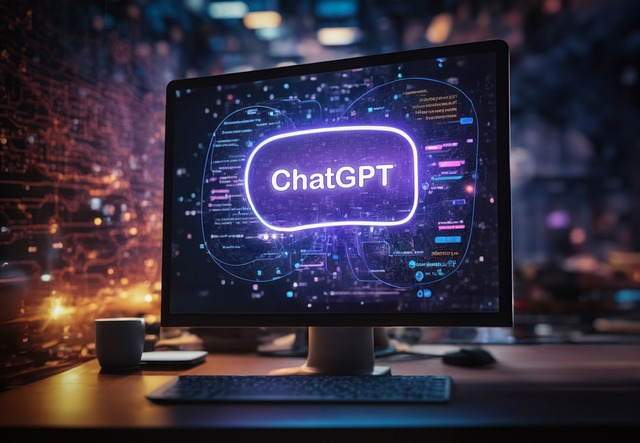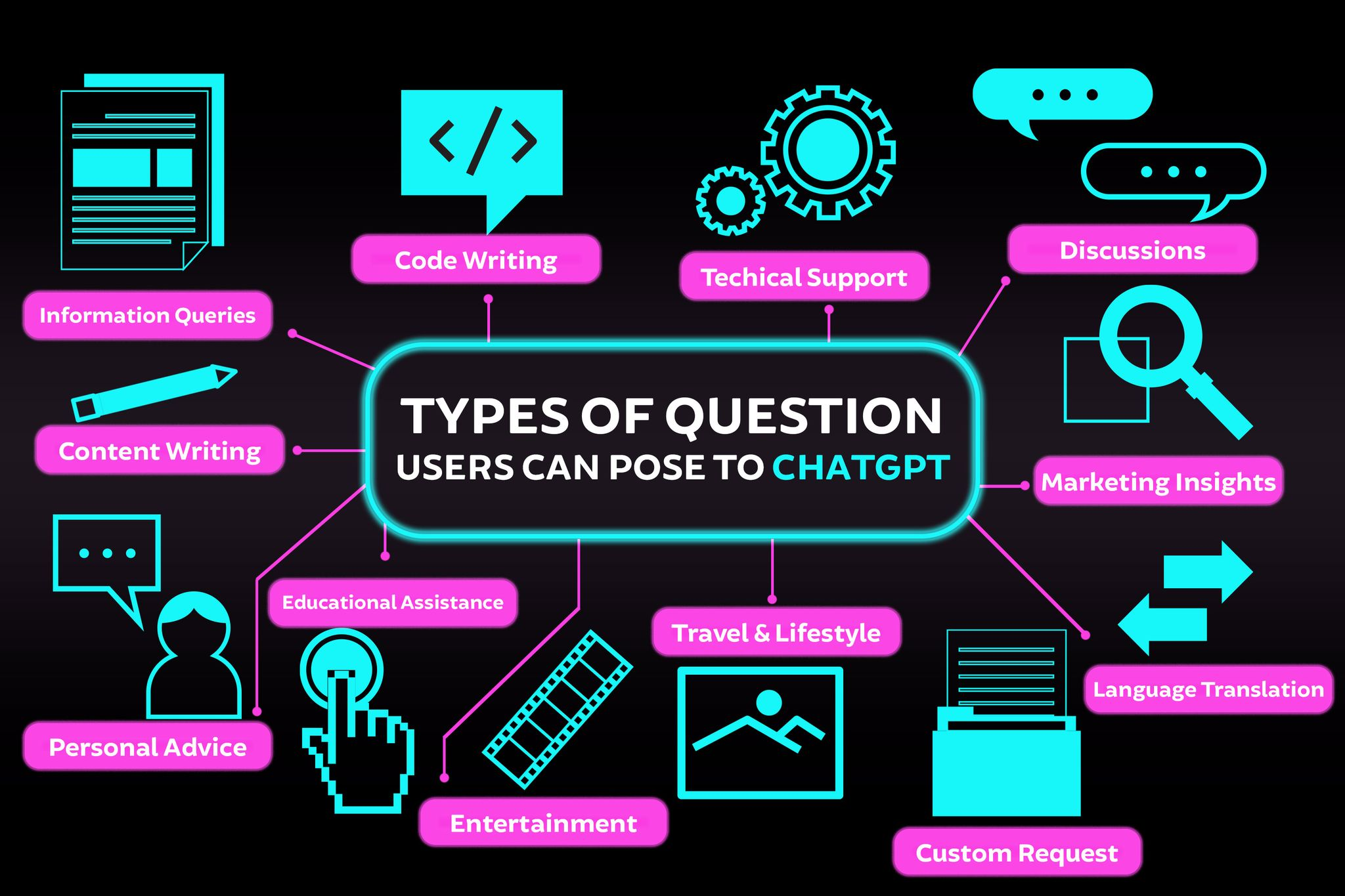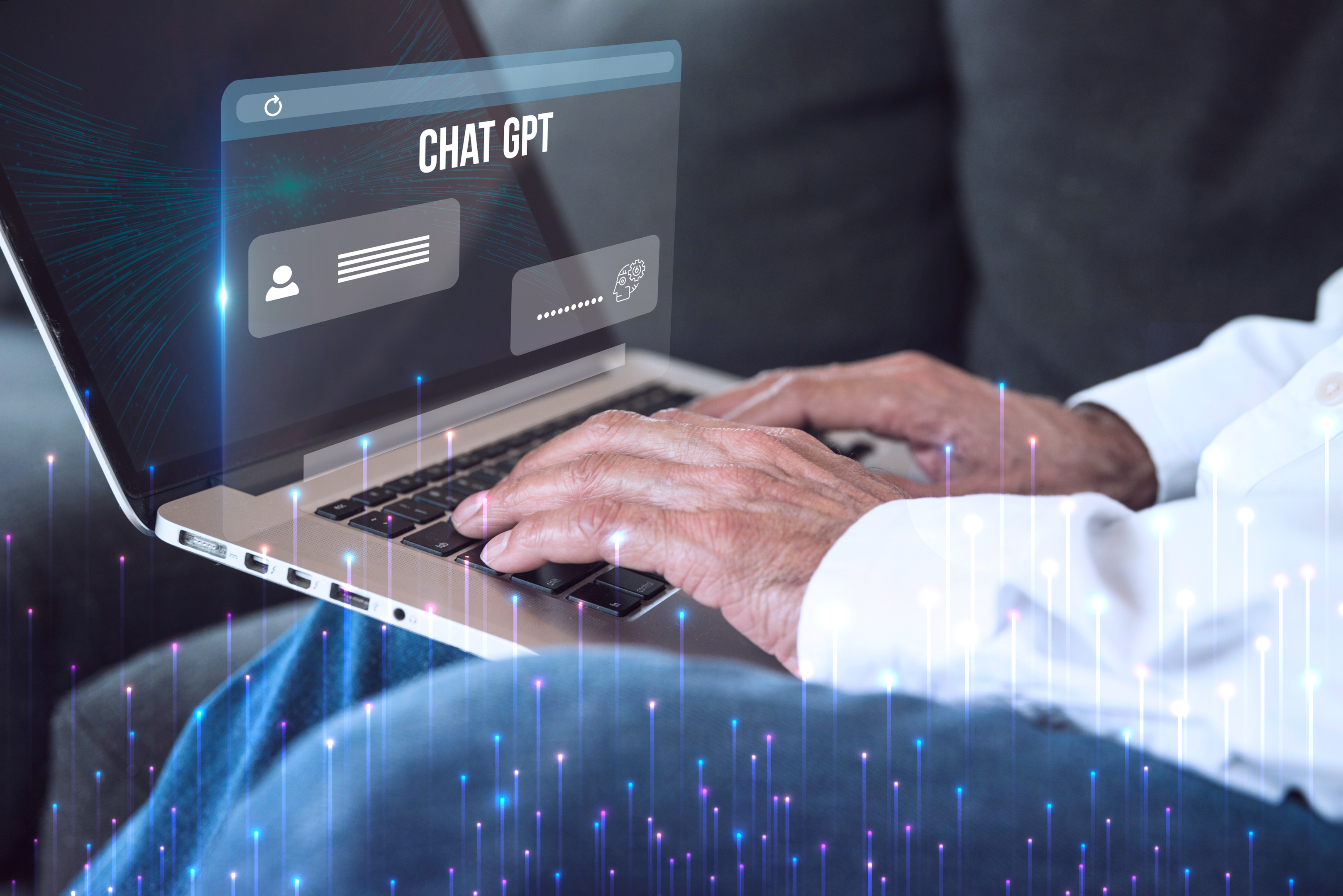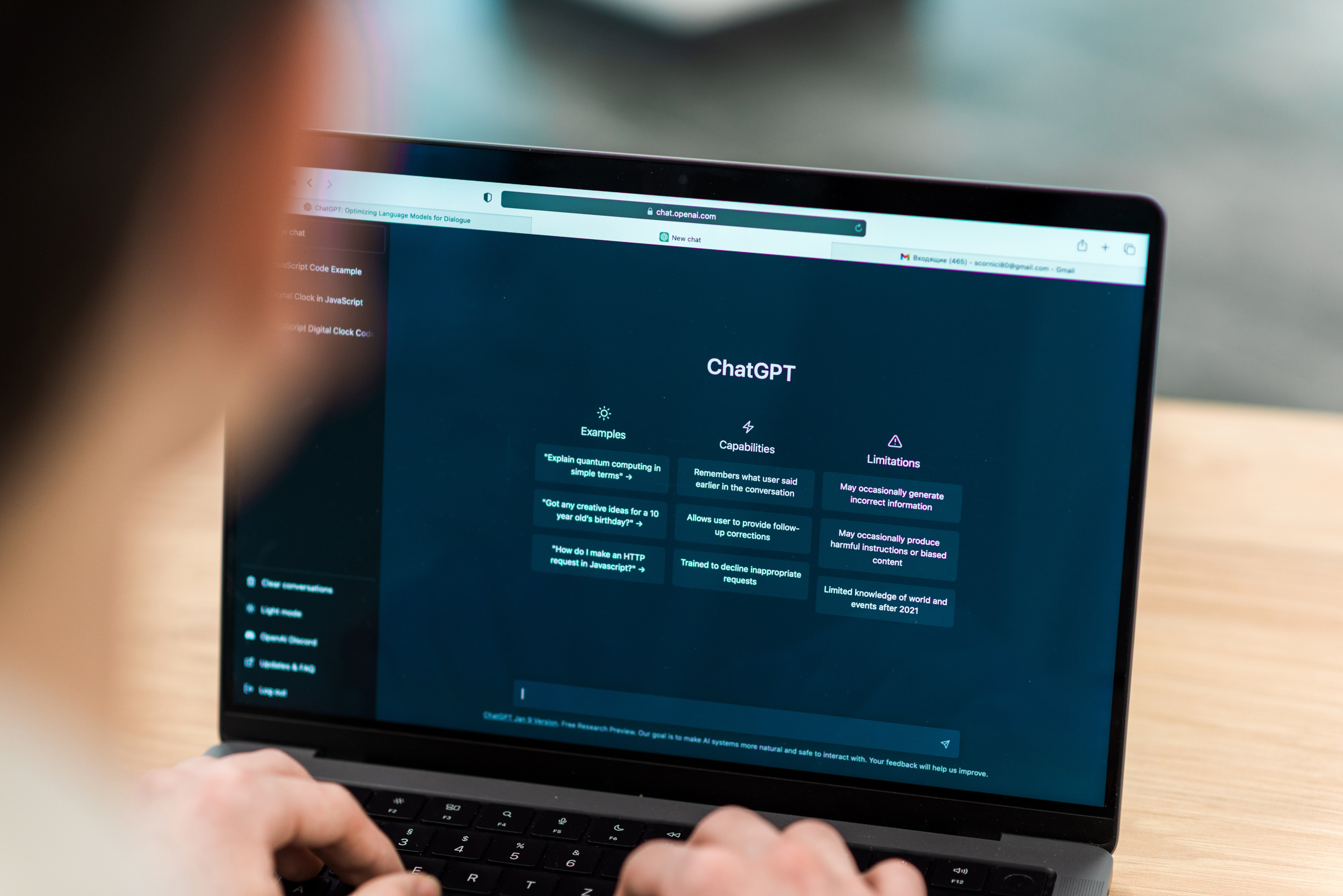
In the evolving landscape of technology, ChatGPT stands out as a beacon of innovation in artificial intelligence. This comprehensive guide delves into the essence of ChatGPT, exploring its creation, workings, applications, and the ethical landscape it navigates.
We will unravel the layers of this technological marvel, providing insights into its expansive capabilities and the impact it holds for the future.
What is ChatGPT?
ChatGPT represents a state-of-the-art language model created by OpenAI, exemplifying the progress in natural language processing and machine learning. This advanced capability allows it to comprehend and produce text akin to human feedback communication.
As a comprehensive language model, it can respond to queries and craft various written materials, such as articles, social media updates, essays, programming code, and emails.
Who Created ChatGPT?
ChatGPT was developed by OpenAI, a company specializing in AI research. Initially established as a nonprofit in 2015, OpenAI transitioned to a for-profit model in 2019.
Sam Altman, a co-founder of the company, serves as its CEO. OpenAI's commitment to advancing artificial intelligence safely and beneficially has culminated in the creation of numerous innovative technologies, among which ChatGPT stands out as a notable achievement.
How does ChatGPT work?
ChatGPT functions on machine learning and profound learning principles, utilizing a complex network of algorithms that resemble the human brain's neural networks. It employs techniques like reinforcement learning and supervised learning, analyzing vast training data to predict the next word in a sentence.
This process allows ChatGPT to generate coherent and contextually relevant text, simulating a human-like understanding of language.
Types of Questions Users Can Pose to ChatGPT

ChatGPT, an advanced language model developed by OpenAI, is designed to interact with users conversationally, handling various queries and tasks. Its capabilities, stemming from the underlying machine learning and natural language processing technologies, allow it to process and respond to multiple questions.
Here are some of the key categories:
Informational Queries
Users can ask ChatGPT factual questions about various topics, ranging from history, science, and technology to general knowledge. It makes it an effective tool for quick information retrieval.
Educational Assistance
ChatGPT can assist in educational contexts, explaining academic concepts, helping with homework questions, and providing summaries of complex topics.
Technical Support
It can guide users through technical problems, such as troubleshooting issues with software or hardware, offering coding help, or explaining complex technical concepts.
Creative Writing
ChatGPT can generate creative content, including stories, poems, dialogue, or song lyrics. Its ability to understand and mimic various writing styles makes it a valuable aid for writers seeking inspiration.
Language Translation and Practice
Users can ask ChatGPT to translate phrases or texts between languages. It can also serve as a practice partner for learning new languages, offering conversation in the target language.
Personal Advice
While not a replacement for professional consultation, ChatGPT can offer general advice on various topics, including daily life challenges, decision-making, or even career guidance.
Programming and Code Writing
For those learning or working in software development, ChatGPT can assist in writing code snippets, explaining programming concepts, and debugging code.
Business and Marketing Insights
ChatGPT can provide insights on business strategies, marketing ideas, and market trends and offer suggestions for improving business plans or marketing campaigns.
Travel and Lifestyle
Users can seek recommendations on travel destinations, culinary suggestions, lifestyle tips, and other leisure-related information.
Entertainment and Humor
ChatGPT can engage users with jokes, fun facts, quizzes, and other forms of entertainment to lighten the mood or pass the time.
Philosophical and Ethical Discussions
Those interested in deeper conversations can explore philosophical ideas, ethical dilemmas, or theoretical discussions with ChatGPT.
Custom Requests
Users can also give custom instructions to ChatGPT to perform specific tasks, such as summarizing content, generating specific types of text, or simulating particular conversational styles.
ChatGPT's versatility as a large language model enables it to handle a broad spectrum of questions, making it a valuable tool for information gathering, learning, creative assistance, and much more. However, users should be aware of its limitations rather than relying on it for highly specialized or sensitive advice.
What are the Benefits of ChatGPT?
ChatGPT, developed by OpenAI, is a groundbreaking language model that has revolutionized how we interact with technology. Utilizing advanced machine learning and natural language processing techniques, it offers a wide range of benefits across various sectors:
Enhanced Customer Service: ChatGPT can automate and improve customer support services. It provides instant, 24/7 responses to customer inquiries, reducing wait times and improving user experience.
Educational Support: In education, ChatGPT serves as a valuable resource for students and educators. It can help with homework, explain complex concepts, and provide additional learning resources, thus enriching the educational process.
Content Creation: For writers and content creators, ChatGPT is a boon. It can assist in generating creative content, from articles to stories, and even help overcome writer's block by providing ideas and inspiration.
Programming Assistance: Programmers and developers can use ChatGPT to write, debug, and understand code. Its ability to process and generate coding language enhances productivity and learning in software development.
Language Learning and Translation: ChatGPT can aid in language learning by providing practice conversations and translations. It makes it an invaluable tool for those looking to learn a new language or needing quick translation services.
Business Intelligence: In the business sector, ChatGPT can analyze data, generate reports, and provide insights on market trends, helping businesses make informed decisions.
Accessibility: ChatGPT's ability to understand and generate human language makes technology more accessible to people who may not be tech-savvy. It simplifies interactions with digital platforms, making technology user-friendly for a broader audience.
Research and Information Gathering: Researchers and information seekers can utilize ChatGPT to gather information quickly, summarize articles, and get insights on various topics, saving time and enhancing research efficiency.
Personal Assistant Functions: ChatGPT can function as a personal assistant, helping users organize schedules, set reminders, and find information on various personal and professional matters.
Entertainment and Engagement: Beyond practical applications, ChatGPT can also entertain. It can engage users in conversations, tell jokes, and provide a fun and informative interactive experience.
Cost-Effective Solution: By automating tasks and providing instant responses, ChatGPT can help reduce operational costs for businesses and organizations, making it a cost-effective solution for many.
Customizable Interactions: With custom instructions, ChatGPT can be tailored to fit specific needs and preferences, enhancing user experience and making interactions more personalized.
ChatGPT offers many benefits, from enhancing productivity and creativity to providing educational support and entertainment. Its ability to understand and generate human language with remarkable accuracy makes it a versatile tool capable of addressing various needs in an efficient and user-friendly manner.
What are Custom Instructions in ChatGPT?

Custom instructions in the context of ChatGPT refer to specific, tailored directives that users provide to guide the AI's responses or actions. These instructions allow users to customize how ChatGPT processes information and generates output.
Users can better shape the AI's behavior to suit their needs or objectives by giving detailed, context-specific commands. For instance, a user might provide custom instructions to ChatGPT to write a poem in a particular style, summarize a complex document in simple terms, or simulate a specific conversational tone.
This feature enhances the versatility of ChatGPT, making it adaptable to a wide range of tasks and interactions, from creative writing to technical explanations. Custom instructions allow users to leverage the AI's capabilities more controlled and directedly, aligning its outputs more closely with their specific requirements or preferences.
What are the Limitations of ChatGPT?
While ChatGPT is a powerful tool, it's essential to recognize its limitations:
Lack of Real-World Understanding: ChatGPT doesn't have real-world experience or consciousness. Its responses are based on patterns in data rather than personal experience or understanding.
Dependence on Training Data: The quality and breadth of ChatGPT's responses depend heavily on its training data. If the data is limited or biased, the responses can reflect this.
Potential for Inaccurate Information: ChatGPT might occasionally provide incorrect or outdated information, as it relies on the data available up to its last training update.
Lack of Emotional Intelligence: While it can mimic empathetic responses, ChatGPT doesn't possess natural emotional intelligence or understanding.
Inability to Provide Personalized Advice: ChatGPT can't offer personalized advice like a human expert, particularly in specialized or sensitive topics.
Risk of Misuse: There's a potential for misuse, such as generating misleading information or being used to create deceptive content.
Language Limitations: While proficient in many languages, ChatGPT's capabilities can vary across different languages, significantly less common ones.
Contextual Limitations: ChatGPT may need help with complex contexts or nuances in conversation, leading to misunderstandings or irrelevant responses.
Understanding these limitations is crucial for users to act effectively and responsibly utilizing ChatGPT.
What are the Ethical Concerns Associated with ChatGPT?

The development and use of ChatGPT, like many advanced AI technologies, raises several ethical concerns:
Data Privacy: ChatGPT is trained on vast datasets that may contain personal information. Ensuring the privacy and security of this data is a significant concern.
Bias and Fairness: Since ChatGPT learns from existing data, it can inherit and amplify biases present in the training material. It raises concerns about fairness and discrimination in its responses.
Misinformation and Abuse: The potential for ChatGPT to generate convincing but false or misleading information poses risks of abuse, such as creating fake news or impersonating individuals.
Intellectual Property: As ChatGPT can generate text based on input, it poses challenges to intellectual property rights, particularly in creative fields.
Impact on Employment: The automation capabilities of ChatGPT might affect job markets, particularly in sectors reliant on writing and customer service, leading to concerns about employment displacement.
Dependence and Skill Degradation: Over-reliance on AI for tasks like writing and problem-solving could lead to skill degradation in humans.
Ethical Decision-Making: ChatGPT's limitations in understanding complex ethical nuances can be problematic, primarily if used for advice or decision-making in sensitive matters.
Transparency and Accountability: It is crucial to ensure transparency in how ChatGPT works and who is accountable for its outputs, especially in critical applications.
Addressing these ethical concerns requires collaborative efforts from developers, policymakers, and users to ensure that ChatGPT is used responsibly and beneficially.
Final Thoughts
ChatGPT, a remarkable development in artificial intelligence, is a testament to the strides made in natural language processing and machine learning. This sophisticated tool, created by OpenAI, demonstrates a significant leap in our ability to harness technology for various applications, from enhancing customer service to supporting education and creativity.
As we've explored, ChatGPT's capabilities range from answering queries and generating text to assisting in technical tasks and offering educational support. Its versatility and user-friendly interface make it an invaluable asset in numerous fields, streamlining processes and opening new avenues for innovation and productivity.
However, it's crucial to acknowledge the limitations and ethical concerns associated with ChatGPT. These issues require careful consideration and responsible handling, from potential biases in its training data to challenges in privacy, intellectual property, and the impact on employment.
In conclusion, ChatGPT represents a significant milestone in our journey with AI. Its immense benefits offer a glimpse into a future where human-AI collaboration becomes increasingly seamless.
Yet, as we embrace this technology, we must remain vigilant and proactive in addressing its ethical and practical challenges. The journey with ChatGPT is about leveraging its capabilities and navigating its complexities with foresight and responsibility.
For a deeper understanding of effectively utilizing and connecting ChatGPT to your needs, explore Prompt Engineering Daily and consider subscribing for more insights.
FAQs
Is ChatGPT free?
Yes, the basic version of access ChatGPT is entirely free to use. There's no limit to how much you can use ChatGPT in a day, though there is a word and character limit for responses.
Is there a ChatGPT app?
Indeed, ChatGPT has official mobile applications available for iPhone and Android users. These can be obtained from your device's respective app store. Install the official app to place a ChatGPT shortcut on your smartphone's home screen.
Does ChatGPT give wrong answers?
ChatGPT is not 100% accurate. Like any other AI model, ChatGPT can sometimes generate nonsensical answers and experience hallucinations – when AI starts making up information. OpenAI does openly state that their chatbot can, from time to time, produce incorrect information.
Can I use ChatGPT to edit my essay?
When you request the tool to revise your essay, it will instruct you to input your text into the chatbot. Following this, ChatGPT will produce a version of your essay with the necessary corrections applied.
How many free chats do you get on ChatGPT?
There are no usage limits on the accessible version of ChatGPT. It means anyone can use this cutting-edge technology without worrying about hidden fees or subscription charges. It offers access to GTP-3.5, which is still incredibly capable and helpful in many applications.
